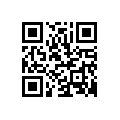The goal of the W3C Digital Publishing Activity is help make the Web a platform for the digital publishing industry, and to build the necessary bridges between the developers of the Open Web Platform and the publishing industry.
At the moment, work in this activity takes place primarily in the Digital Publishing Interest Group and in the Web Annotation Working Group
Through the initiatives taken by this Activity (Workshops, Interest Groups, possibly other types of Groups), as well as an extensive network of contacts with relevant industry consortia and groups (IDPF, BISG, EDItEUR, IPTC, the Daisy Consortium, etc.) the Activity should ensure that the interests and requirements of the Publishing Industry are known to other groups within the W3C, that experts of commercial publishers take part in the technical work in those groups to move the Open Web Platform forward, and that the Publishing Industry at large is well aware of the latest directions, issues, and priorities at W3C.
Questions? Contact Ivan Herman <ivan@w3.org>, W3C Digital Publishing Activity Lead.
About Digital Publishing
Today, eBooks compete with printed versions, and there is a wide choice of hardware and software available for eBook readers. Journals and magazines are also made available digitally on the Web or in specialized applications and, in some cases, their printed version is even abandoned in favor of a purely digital version. The formats used by eBook readers and tablets for electronic books, magazines, journals and educational resources are largely based on W3C Technologies, such as (X)HTML, CSS, SVG, SMIL, MathML, or various Web API-s. Commercial publishers also rely on W3C technologies in their back-end processing all the way from authoring through to delivering the printed or electronic product and beyond. In general one can say that the Publishing Industry is one of the largest communities relying large palette of W3C technologies.
However, the alignment of the needs of the Publishing Industry and the various W3C recommendations is not satisfactory. Necessary features may be missing in the W3C documents, or may be in draft only; as a result, for example, EPUB3, the standard for electronic books, had to introduce its own extensions to cover the needs of publishing. Technical experts of commercial publishers and retailers are not present at the various Working Groups, they do not contribute to the development of the technical solutions they depend on. As a result, requirements of the publishing industry, their use cases, implementation experiences, etc., do not necessarily reach the various technical groups at the W3C in a timely manner, and do not influence the priorities taken by those groups. This leads to fragmentation, interoperability issues, and a disconnect between the Publishing Industry and, for example, the browser world.
The goal of this Activity is to take the necessary measures to overcome this problem, to ensure that the Publishing Industry is duly considered and represented in the advancement of the Open Web Plaform.

